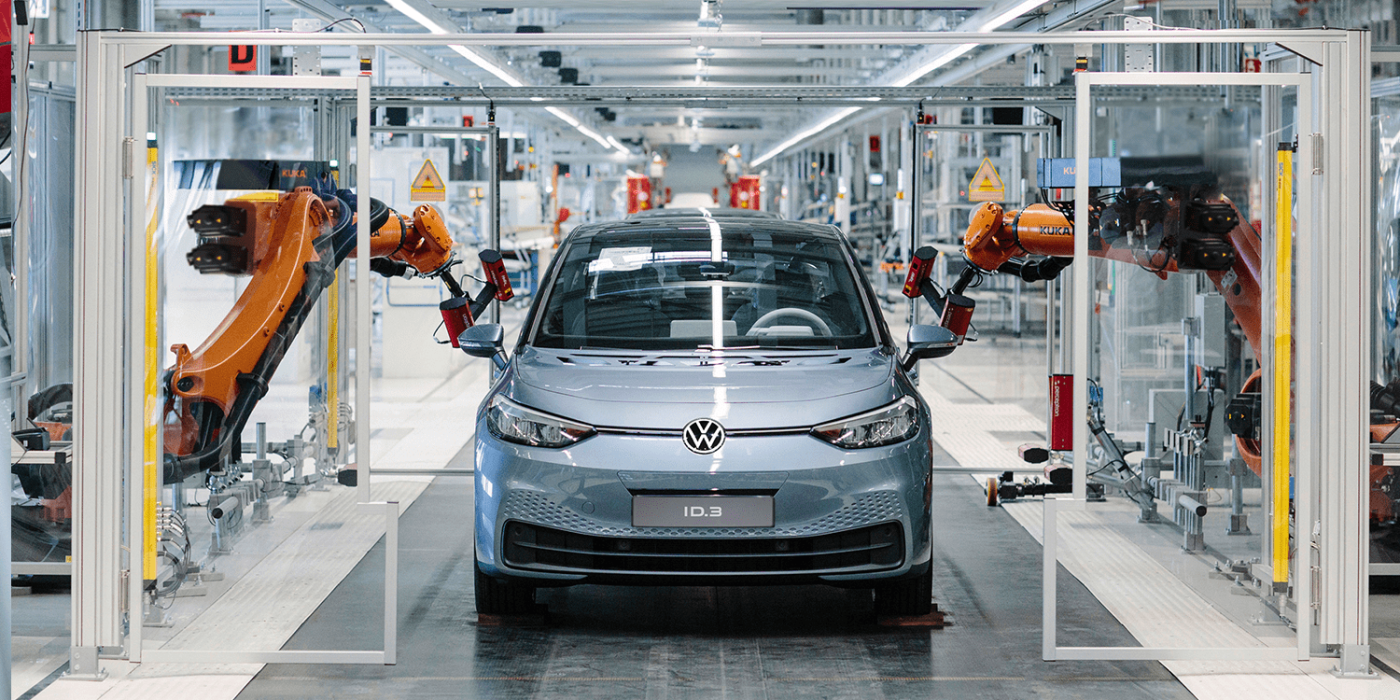Volkswagen dials down electric car production in Saxony
VW Sachsen produces electric cars on two lines in Zwickau: Line 1 for the ID.3 compact models and the Cupra Born, while the ID.4, ID.5, Audi Q4 e-tron, and Q4 Sportback e-tron SUV models (and SUV coupés) roll off the production line on Line 2. Said Line 2 is currently at a complete standstill because there is a supply bottleneck for the new APP550 electric motor, probably until the beginning of December, as reported.
Line 1, which was already halted for two weeks during the autumn holidays in Saxony in October due to a lack of demand, is now cancelling the night shift – meaning that the ID.3 and Cupra Born will only be built during the early and late shifts. This step had been foreshadowed by a change to the works agreement concluded around 30 years ago – at the end of September, VW cancelled the guarantee of a three-shift operation, thus creating the possibility of switching to two shifts per day.
Depending on the market situation, the second production line at the site “could also be converted to a classic two-shift operation with early and late shifts” next year, a spokesperson for the site told the German magazine Handelsblatt.
The bad news for Zwickau continues. In addition to the break in October and the lack of motors for the SUV models, Volkswagen already announced in September that the temporary contracts of almost 270 employees at the plant would not be extended. Even then, there were references to low demand. Zwickau can produce up to 350,000 cars per year in three-shift operation. As early as 2022, only 218,000 vehicles were built; according to Handelsblatt, VW expects to make 230,000 electric cars in Zwickau this year.
The measure currently only affects the plant in Saxony. However, there is already a second European production facility for the ID.4 in Emden. Overflow ID.3 production is due to start this year at the main plant in Wolfsburg (with parts supplied from Zwickau), while Audi scheduled further Q4 e-tron production at its Belgian plant in Brussels. However, suppose not even the first plant in Saxony is working at total capacity and is cancelling a shift. In that case, there is really no need for a second site with even lower capacity utilisation.
handelsblatt.com (in German)





0 Comments